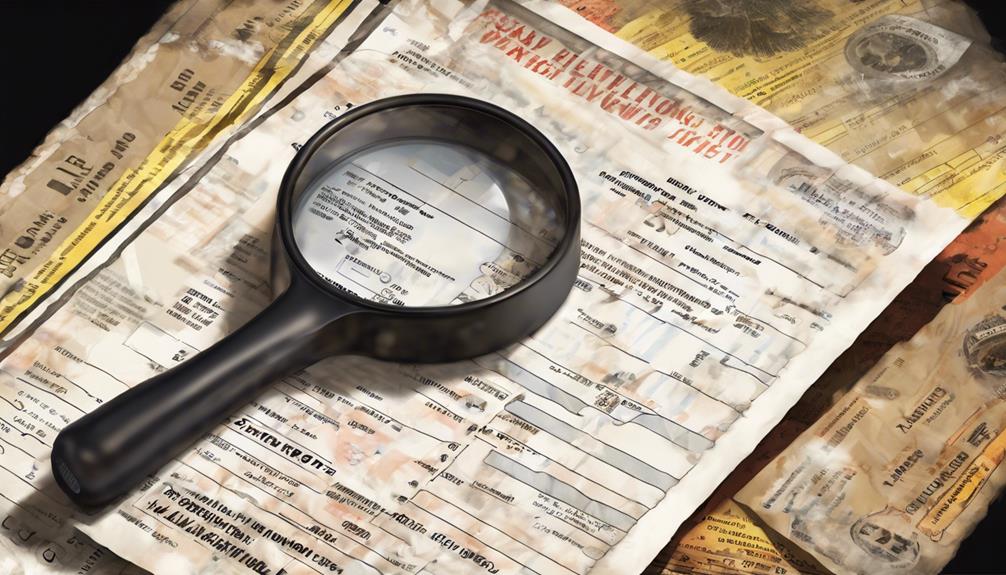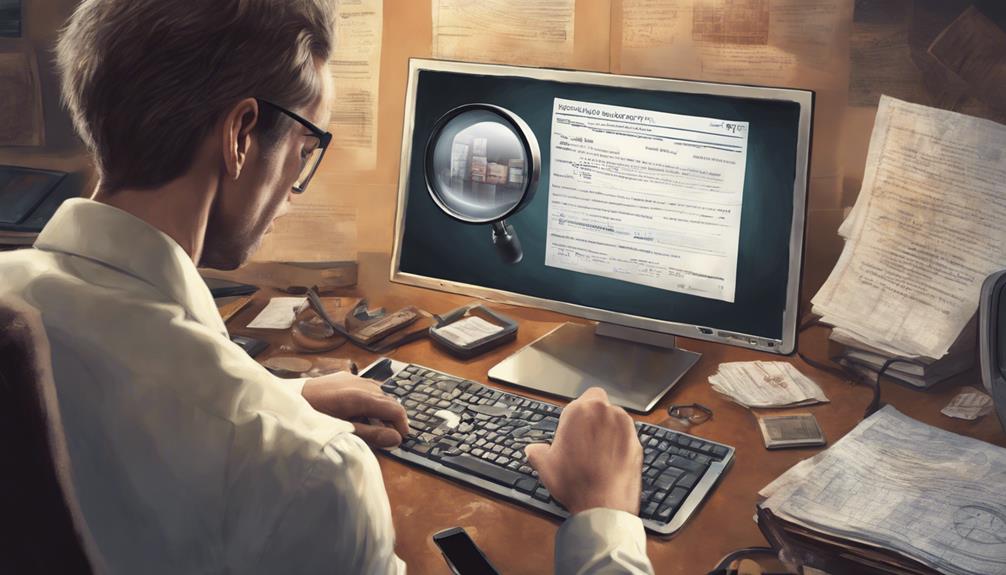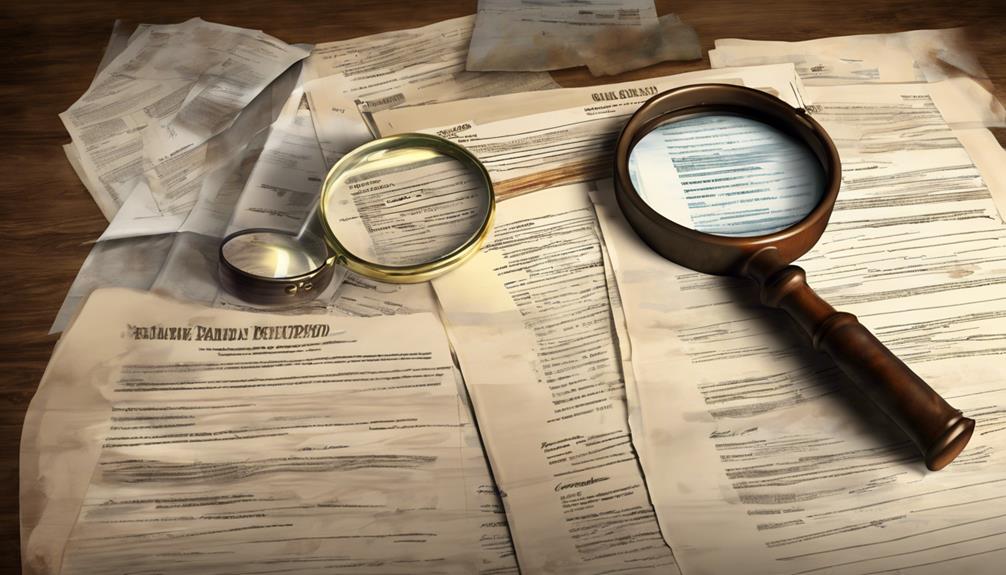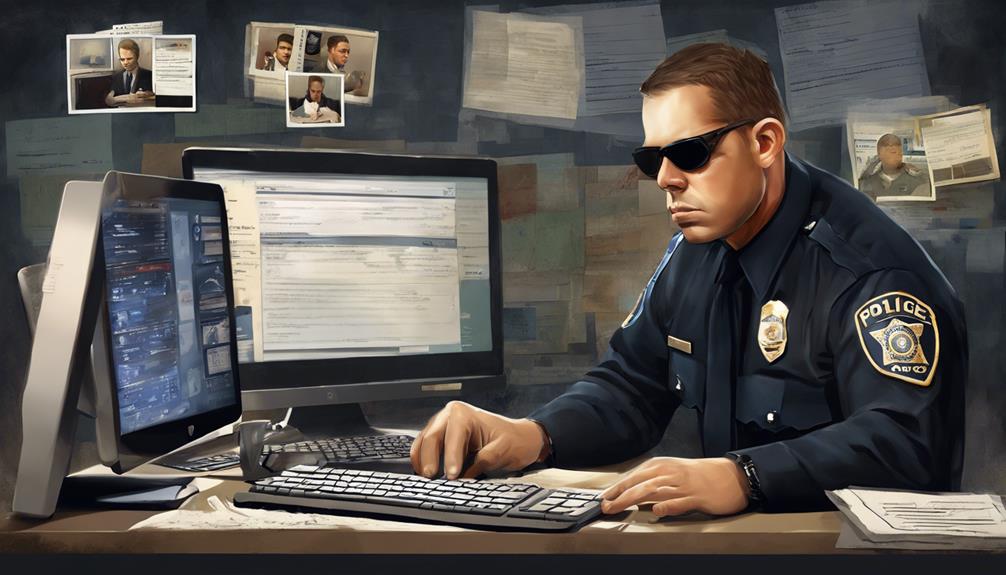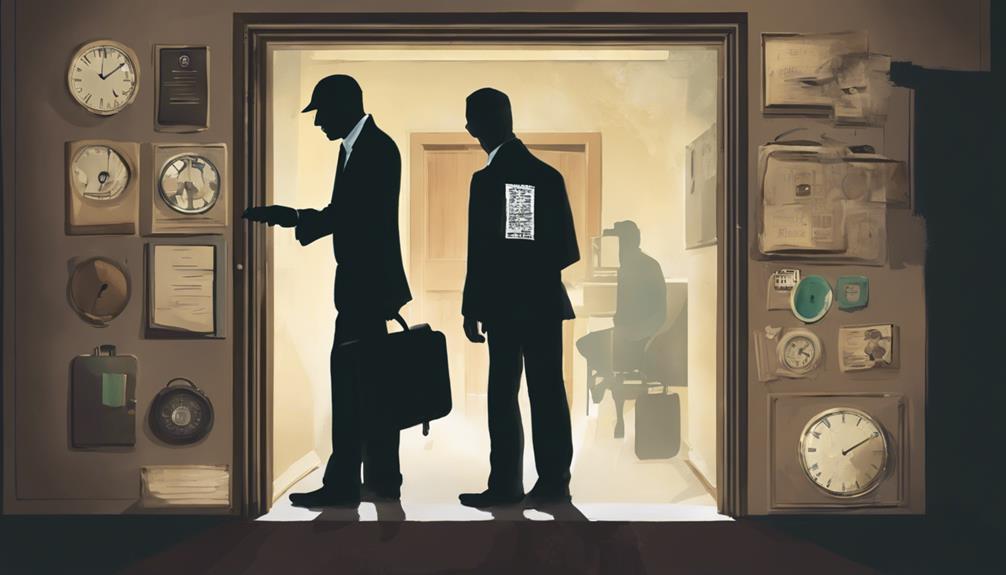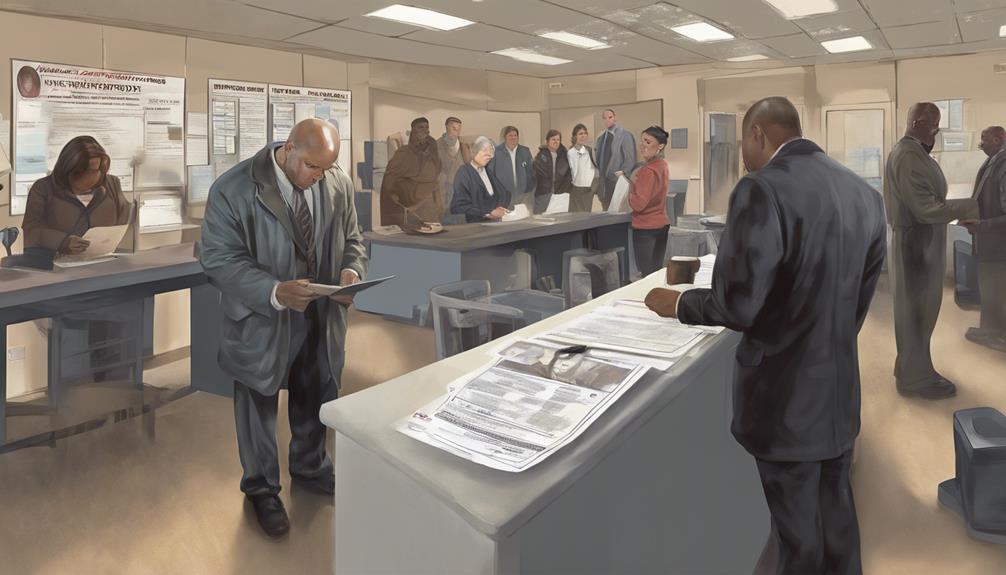Minor traffic violations like speeding usually don't show up on background checks. However, serious offenses like hit-and-run or DUI may be visible. Employers focus primarily on criminal citations for significant crimes. Keeping a clean driving record is important to avoid complications during the hiring process.
Key Takeaways
- Minor traffic violations typically do not appear on criminal background checks.
- Serious offenses like DUI or hit-and-run may show up on background checks.
- Employers focus on significant criminal citations, not minor traffic infractions.
- Maintaining a clean driving record is crucial to avoid issues during background checks.
- Traffic violations can impact job prospects, especially for roles involving driving responsibilities.
Minor Traffic Violations and Criminal Background Checks

Minor traffic violations typically don't appear on criminal background checks conducted by employers. While more serious offenses like hit-and-run or DUI may show up, common infractions such as speeding or running a red light usually do not.
These minor violations are usually recorded on an individual's driving record rather than their criminal record. Employers tend to focus on criminal citations for significant crimes during background checks, rather than minor traffic violations.
This distinction is important as it helps prevent minor driving infractions from negatively impacting job prospects. It's essential for individuals to maintain a clean driving record to avoid any potential complications during the hiring process.
Impact of Traffic Violations on Job Prospects
Traffic violations can have a significant impact on one's job prospects, particularly in roles that involve driving responsibilities. Employers often conduct driving record checks for positions that require driving, making it vital to maintain a clean record. Criminal driving offenses like DUI or driving without a license can seriously hinder future job opportunities, as they signal irresponsible behavior and a lack of adherence to the law.
On the flip side, prompt payment of fines for traffic violations can showcase accountability and responsibility, potentially reflecting positively on an individual during job applications. Handling minor infractions appropriately and demonstrating responsible behavior can also help mitigate the negative impact of past traffic violations on one's job prospects.
Employers value candidates who show a commitment to safe driving practices and abide by traffic laws, as this indicates reliability and trustworthiness in fulfilling driving responsibilities. Overall, maintaining a clean driving record is essential for maximizing employment opportunities and avoiding potential setbacks in one's career path.
Legal Implications of Speeding Tickets in Texas

Speeding tickets in Texas carry legal implications that can result in fines, court appearances, and potential license suspension or revocation.
When facing a speeding ticket in Texas, individuals may experience the following emotional impact:
- Anxiety: The uncertainty of facing fines and court appearances can lead to heightened anxiety and stress.
- Fear: The possibility of license suspension or revocation can instill fear of losing driving privileges.
- Regret: Not addressing speeding tickets promptly with the help of a traffic lawyer can result in warrants and further legal consequences, leading to feelings of remorse.
Understanding the severity of these consequences is crucial for individuals dealing with speeding tickets in Texas.
Seeking legal guidance and taking proactive steps can help mitigate the potential negative outcomes associated with these traffic violations.
Effect of Defensive Driving Courses
Taking a defensive driving course can have a significant impact on how speeding tickets affect one's driving record and insurance rates. Defensive driving courses offer a beneficial option for individuals with traffic violations, especially first-time offenders. By completing a defensive driving course, individuals may have their speeding tickets dismissed, keeping the violation off their driving record. While the dismissed tickets may still be visible on DMV records, the actual offense mightn't show up, which can be advantageous during background checks.
Moreover, attending a defensive driving course is often suggested as an alternative to paying fines for certain traffic violations. This not only helps individuals avoid potential insurance rate increases resulting from a speeding ticket but also provides an opportunity to improve driving skills and knowledge.
Options for Dealing With Speeding Tickets

How can individuals effectively handle speeding tickets to minimize their impact on their driving record and insurance rates?
When faced with a speeding ticket, there are several options available:
- Paying fines: This is the quickest way to resolve the ticket but may result in points on your driving record and increased insurance rates.
- Contesting in court: By challenging the ticket in court, you have the opportunity to present your case and potentially have the ticket dismissed.
- Defensive driving courses: Attending these courses can lead to the dismissal of a speeding ticket, help avoid points on your driving record, and may even lower insurance premiums.
Seeking legal advice or consulting with traffic ticket attorneys can provide valuable insight into the best course of action based on your specific situation.
Understanding the consequences of speeding tickets, including potential license suspension, is essential in making informed decisions on how to address them effectively.
Frequently Asked Questions
Is a Traffic Violation a Crime in Texas?
In Texas, a traffic violation can be classified as a crime depending on the nature of the offense. Criminal traffic offenses such as DUI or reckless driving are considered crimes under Texas law and can have serious consequences.
Are Traffic Tickets Public Record in Texas?
Traffic tickets in Texas are public record, accessible to individuals and employers. The Texas Department of Public Safety maintains records of traffic violations, including speeding tickets. Employers often request driving records to assess an individual's driving history.
How Long Does a Ticket Stay on Your Record in Texas?
In Texas, a ticket typically stays on a driving record for three years, but serious violations like DUIs can linger for up to 10 years. Defensive driving courses can help remove points for minor infractions.
Do Speeding Tickets Show up on Background Checks in Texas?
Speeding tickets in Texas may show up on background checks, especially if classified as criminal offenses. Dismissed tickets might not appear on criminal checks but could be visible on driving records requested by employers from the DPS.
Do Traffic Violations and Ordinance Violations Have the Same Impact on Background Checks?
When it comes to background checks, traffic violations and ordinance violations are not always treated the same. While traffic violations may show up on driving record checks, ordinance violations in background checks may be included in more comprehensive criminal background checks conducted by employers, potentially impacting employment opportunities.
Conclusion
In the journey of life, traffic violations may seem like mere bumps in the road. However, they can leave lasting marks on one's record and future prospects.
Just as a cracked windshield can distort one's view, traffic violations can cloud opportunities and hinder progress.
By addressing these issues head-on and taking proactive steps to rectify them, individuals can clear the path to a smoother and brighter future.
